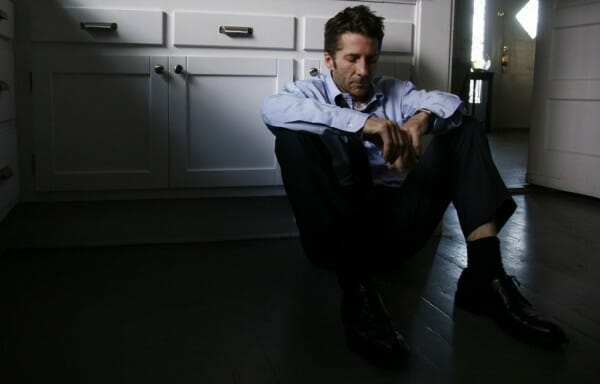Morning

Morning—a story of grief and healing—marks the feature writing and directorial debut of Leland Orser, one of the most recognizable character actors working in film and television today (Taken, Se7en, NBC’s Revolution). Orser’s project originally debuted at SXSW in 2007 as a short film, focusing on a man’s grief after a tragedy. The expanded version tells the same story from the perspectives of Mark and Alice Munroe (Orser and his real-life wife, Jeanne Tripplehorn), who mourn the death of their young son in different ways.
The film opens in a quietly jarring manner with the camera following an elderly woman (Gina Morelli) making her way on a series of buses from her apartment in Los Angeles to one of the city’s more affluent suburbs. Inside a neatly appointed home, flowers and covered food sit on tables and countertops. The voyeuristic camera then travels upstairs to catch a couple having sex. But all is not what it seems: As soon as they finish, we can see that their faces are contorted in pain and heartbreak.
The alarm clock rings precisely at 6:30 am—a recurring motif throughout Morning—and Alice lets it ring. Does the time signify their son’s death? Or does it mark a routine that they’re trying to keep though their world’s been turned upside-down? Orser is vague about the details of the death—though we do learn it was a swimming pool accident—challenging the viewers to come to their own conclusions.
In a harrowing postcoital scene, Alice asks Mark to help her look for her wedding ring, but he chooses to get dressed for work, knowing that he’s in no shape to go. She begs him to stay, not wanting to be left alone in the house, but he leaves anyway—even after she deliberately hurts herself. He drives halfway down the block before the anxiety gets the best of him and turns back home. Meanwhile, Alice packs a bag and leaves him.
The film follows the two over five days of discomforting heartbreak. Mark locks the world out—including the housekeeper who still travels each morning from her apartment to collect their newspapers, sweep outside and light candles in a makeshift memorial for the dead child. Inside the empty house, Mark proceeds to drink, pop pills, and wander through the rooms in a stupor while destroying things and regressing to a child-like state (building Legos, eating and playing with Fruit Loops, and watching cartoons).
-

-

-

-

-

-

-

-

-

-

-

-

-

-

-

-

-

-

-

-

-

-

-

-

-

-

-

-

-

-

-

-

-

-

-

-

-

-

-

-








































